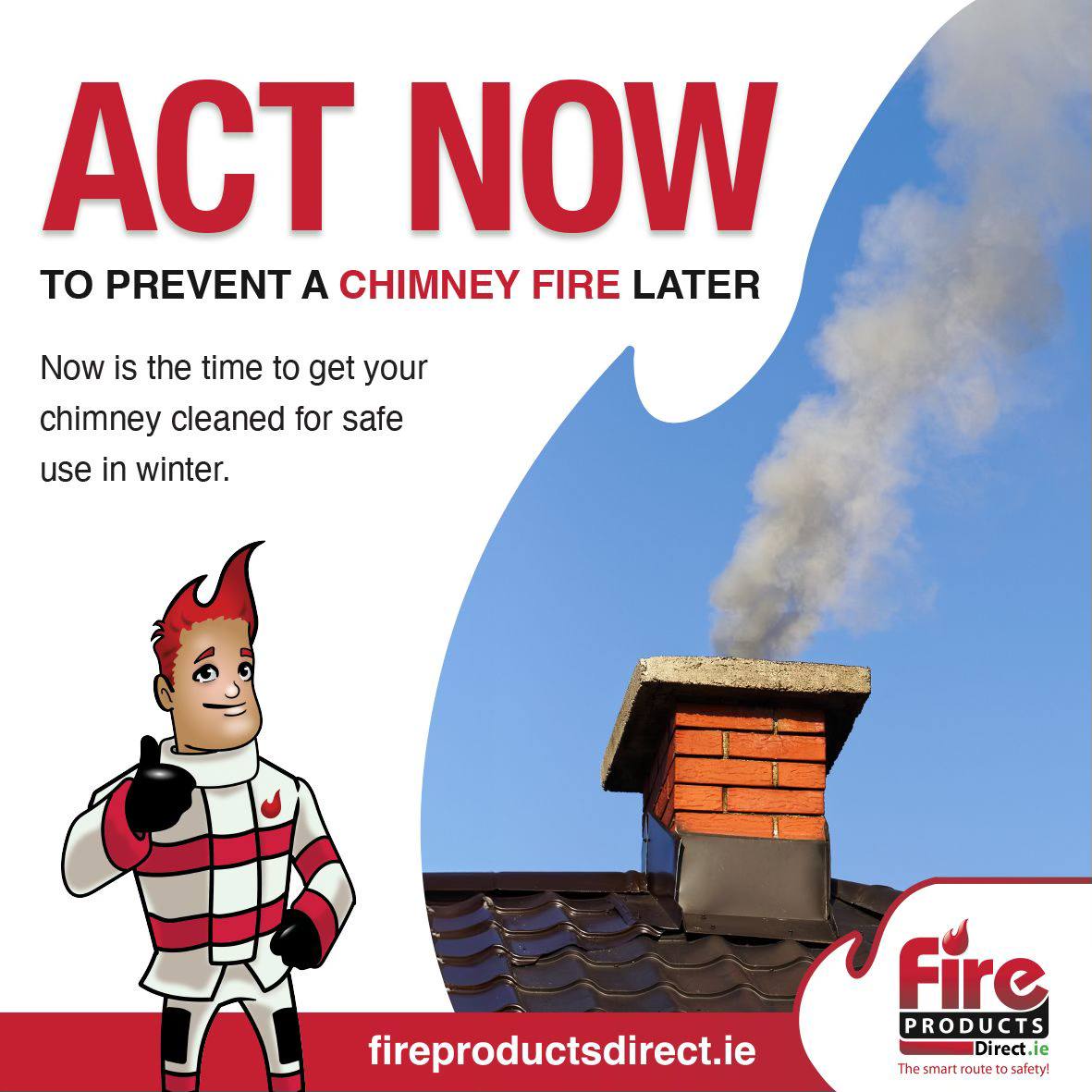
As we transition into the warmer months and our fireplaces and stoves go unused, it’s easy to forget about chimney maintenance. However, summer is the perfect time to ensure your chimney is clean and safe for the next cold season. Ignoring chimney upkeep can lead to severe fire hazards. In this post, we’ll explore the dangers of an unclean chimney, how to get your chimney cleaned, and what to do if you encounter problems.
Understanding the Fire Hazard
Over the winter, your chimney accumulates soot, creosote, and debris from burning wood or coal. Creosote is a tar-like substance that sticks to the inner walls of your chimney and is highly flammable. If it builds up too much, it can ignite, leading to a dangerous chimney fire. These fires can quickly spread to the rest of your home, causing extensive damage and putting lives at risk.
Tips for Preventing Chimney Fires
1. Hire a Professional Chimney Sweep:
The best way to prevent chimney fires is to have your chimney professionally cleaned and inspected at least once a year. Certified chimney sweeps can remove dangerous creosote buildup and identify any structural issues that need attention.
2. Use Seasoned Wood:
Burn only dry, seasoned wood in your fireplace or stove. Green or wet wood produces more smoke and creosote, increasing the risk of a fire.
3. Install a Chimney Cap:
A chimney cap prevents debris, rain, and animals from entering your chimney, reducing the risk of blockages and creosote buildup. It’s a small investment that can significantly improve chimney safety.
4. Avoid Overloading the Fireplace:
Do not overload your fireplace or stove with too much wood. Overloading can cause excessive smoke and creosote formation. Maintain a moderate, steady fire for the safest operation.
5. Regular Maintenance:
Beyond annual cleaning, regularly check your chimney for signs of damage or creosote buildup. Address minor issues promptly to prevent them from becoming major hazards.
Recognising Signs of Chimney Problems
Being aware of the warning signs of chimney problems can help you take action before a fire starts:
Excessive Creosote: A thick layer of creosote inside your chimney is a clear indication that it needs cleaning. You might also notice a strong, unpleasant odour from the buildup.
Smoke Backing Up: If smoke is entering your home instead of going up the chimney, it suggests a blockage or improper draft. This issue needs immediate attention to prevent fire hazards and carbon monoxide poisoning.
Damaged Chimney Structure: Look for signs of structural damage such as crumbling mortar, cracked bricks, or rust on the damper and chimney cap. These issues can lead to chimney fires if not repaired promptly.
Animal Nests: Birds, squirrels, and other animals can build nests in your chimney, causing blockages and potential fire hazards. If you hear noises or notice droppings, it’s time for a professional inspection.
Soot Stains: Stains on the walls or ceiling around the chimney indicate poor ventilation and the need for cleaning. Soot stains can also be a sign of a previous chimney fire, requiring a thorough inspection.
What to Do If You Have a Problem
If you identify any of these warning signs, take immediate action to prevent potential fires:
Contact a Professional: For significant issues like severe creosote buildup or structural damage, hire a certified chimney sweep. They have the expertise and equipment to address the problem safely and effectively.
Install Detectors: Ensure your home is equipped with smoke and carbon monoxide detectors. Regularly check their batteries and functionality to provide an additional layer of safety.
Address Water Damage: If you notice water damage, have a professional inspect the chimney and recommend solutions such as waterproofing or installing a chimney cap to prevent future leaks.
Evacuate and Call Emergency Services: If you suspect a chimney fire, evacuate your home immediately and call emergency services. Do not attempt to extinguish a chimney fire yourself, as it can quickly spread and become unmanageable.
Our Commitment to Your Safety
At Fire Products Direct, we prioritise your safety and well-being. We are committed to providing you with honest, reliable advice and professional guidance. By following these tips and maintaining a regular chimney cleaning schedule, you can significantly reduce the risk of chimney fires and ensure a safe, efficient fireplace or stove.
Remember, chimney maintenance is not just about keeping your fireplace clean; it’s about protecting your home and family from the devastating effects of fire. If you have any concerns or need further assistance, don’t hesitate to reach out. Your safety is our top priority, and we’re here to help every step of the way.
Remember: If you Discover a Fire
- Raise the alarm
- Evacuate the premises
- Call 999 or 112
- Only tackle the fire if safe to do so
Stay safe, and enjoy the peace of mind that comes with a well-maintained chimney!







